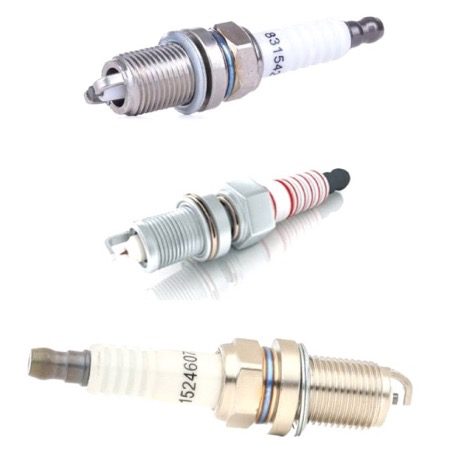A journey is relaxing when your vehicle is comfortable and runs without a glitch. Therefore, your car engine must operate smoothly. For an uninterrupted drive, a car has spark plugs that demonstrate the status of the engine. Thus, always equip your motor vehicles with high-quality spark plugs and notice the benefits. In this article, you will gain information about spark plugs and it’s features and replacement.
What are spark plugs?
The internal combustion engines of automobiles have a fuel-air mixture inside, which is ignited with the help of a device called a spark plug. As the name indicates, when the spark flows between spark plug electrodes, the mixture bursts into flames rapidly. A spark plug has the following components:
- Contact bar
- Centre electrode
- Insulator
- Housing
It works in three ignition systems, namely:
- Electronic
- Contact
- Contactless


Spark plugs illustration taken from sparepartstore24.co.uk
Characteristics of spark plugs for a car
Good quality spark plugs are required for the following purposes:
- It reduces overload on the engine
- It increases the torque all through the rev range
- It enhances the engine’s dynamics and flexibility
- Most importantly, the spark plugs minimize fuel consumption and harmful emissions
Before we learn about the spark plug replacement, it is necessary to know what causes its failures. The primary cause of untimely plug collapse is its contamination with partially burnt products. Other causes of failure are:
Increased spark gap
Worn electrodes
Please note that you must inspect the plug after prolonged engine operation. For instance, when your car went through bumpy rides and long-distance outings through suburban highways.
How to choose and replace spark plugs for a car?
Before purchasing spark plugs, you should inquire about their shelf life, replacement, signs of failure, essential tips, and recommendations.
Depending on the fuel type, quality, and car operating status, the lifespan of the spark plugs may vary. Usually, manufacturers perform replacements based on the material used in plugs. For example,
For nickel plugs, replacement is performed every 20,000 – 30,000 driven kilometers.
Platinum spark plugs may get replaced over 60,000 – 70,000 kilometers.
The life expectancy of the iridium spark plugs is about 80,000 – 100,000 kilometers.
However, in case of accidental breakage of the components, immediate replacement is recommended.
Commonly encountered shortcomings in the spark plugs are mentioned below:
Deposition of carbon, oil, or fuel on the electrodes
Corrosion of the electrodes
Thermal impairments
Faulty plug socket
Soiling of the isolator
Contact service station if you observe:
Black deposits on spark indicate high heat rating or high-voltage wiring
White spark plugs signal too low heat rating.
Reddish discoloration of the parts
Some of the defects depict immediate replacement of the components and should be actively taken care of. For example, excessive jerks or noisy start are the common signs of deteriorating car dynamics and an utmost need to replace the spark plugs.








Leave a Reply
View Comments